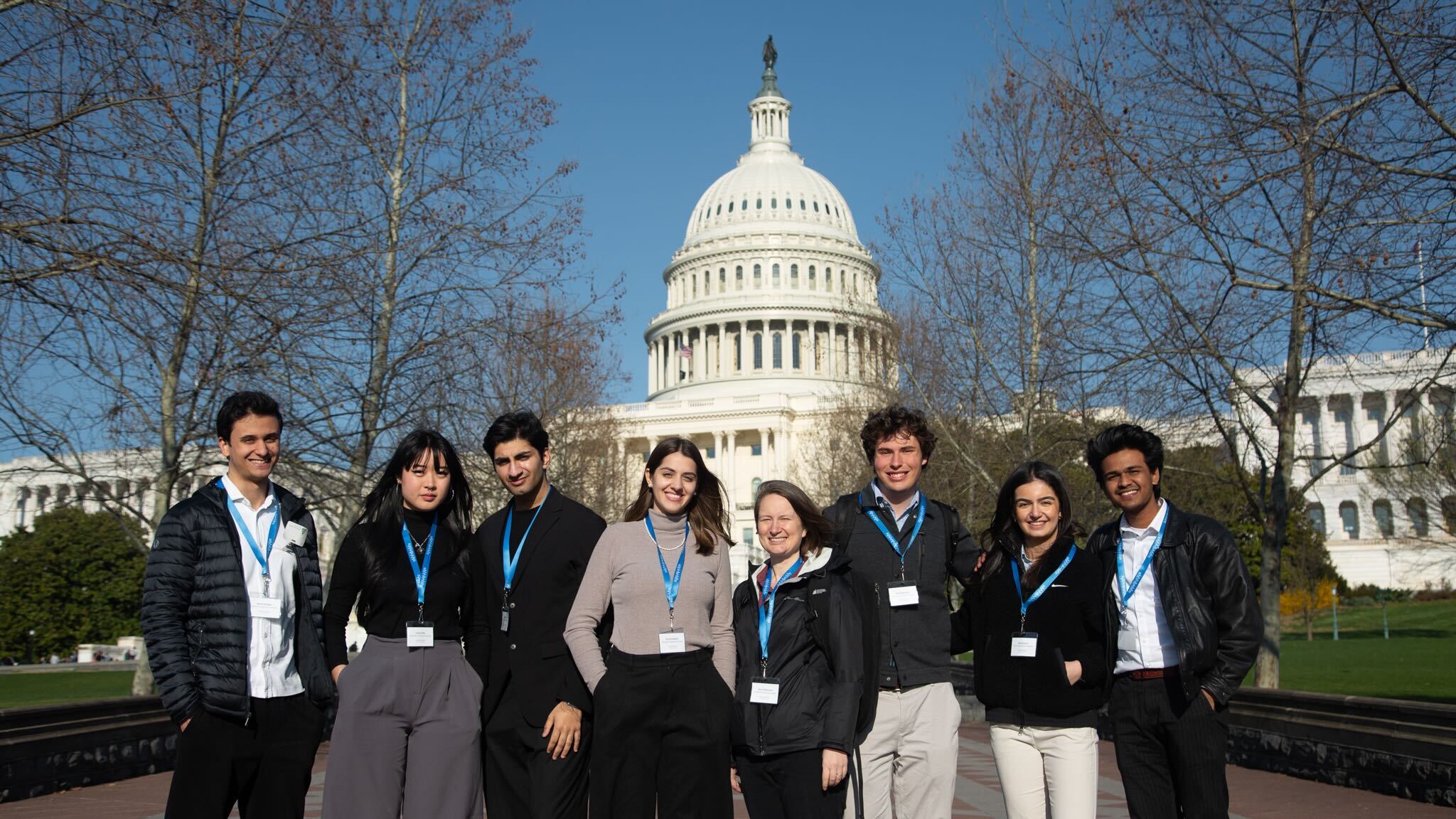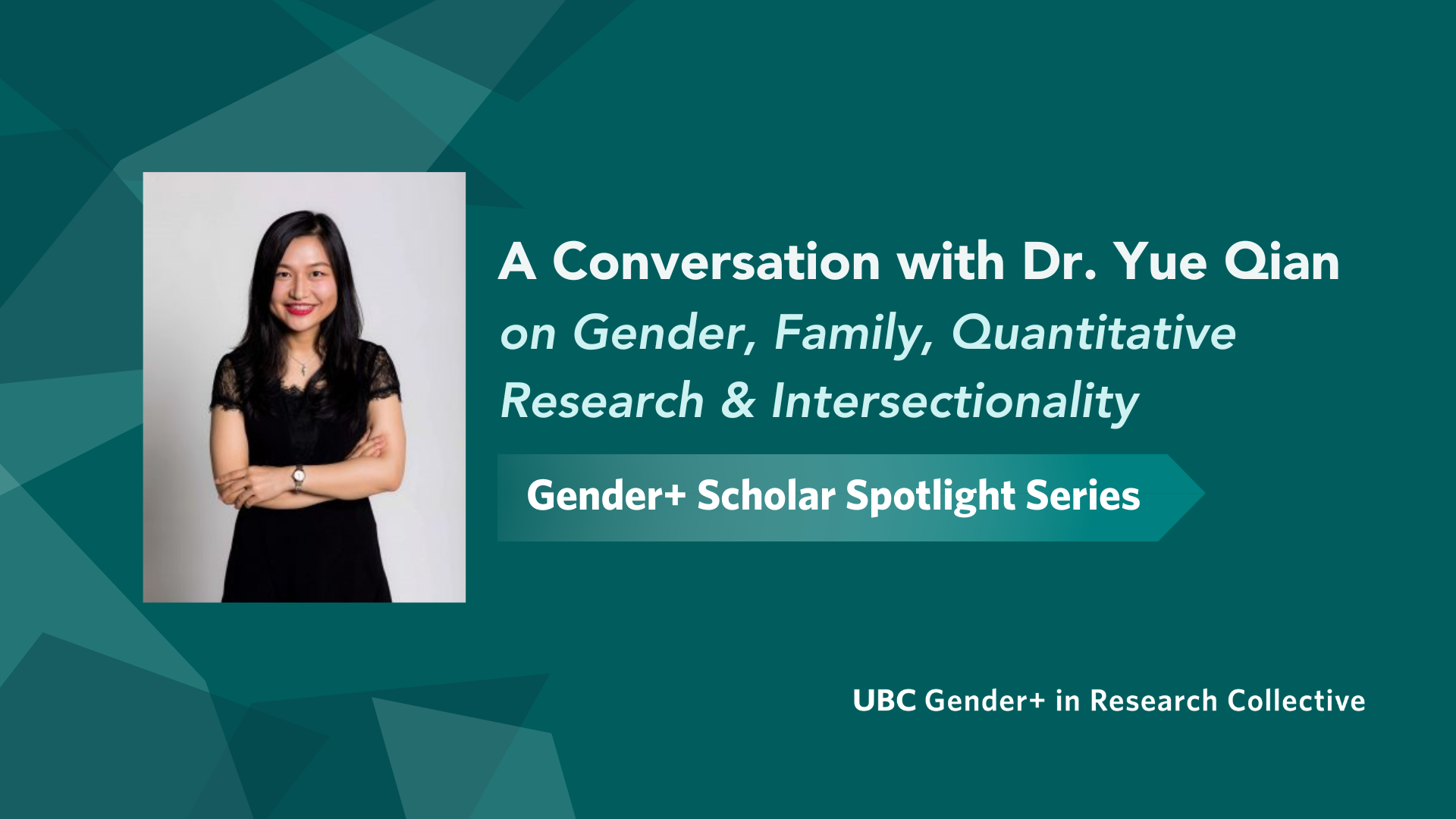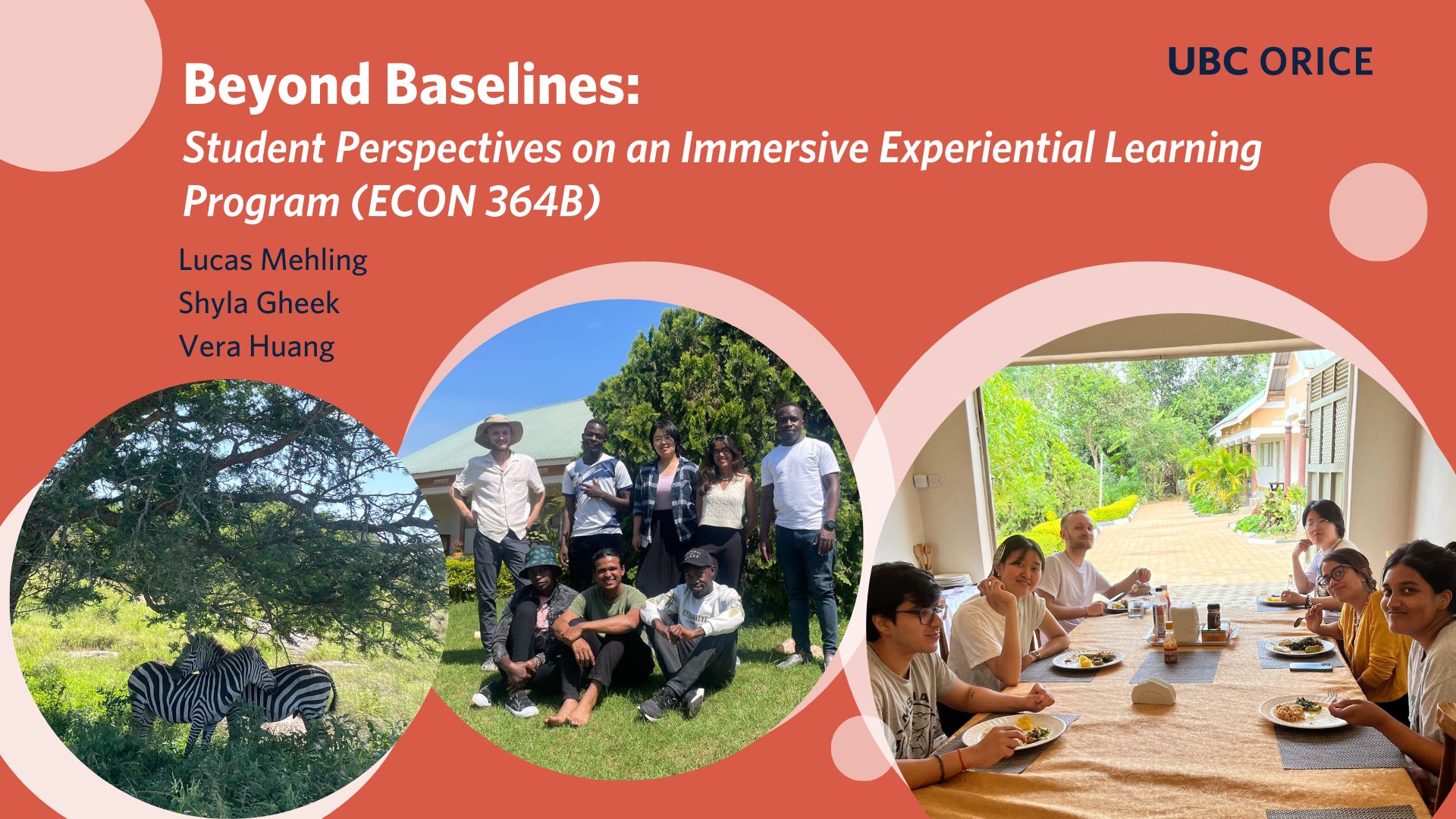

In July 2020, the Gender+ in Research Collective Engagementship was formed, launching an opportunity for students to investigate the ways in which citizen science can be used by and for communities to collect data for their own benefit. Students were guided by questions about how we might understand community-based participatory research and the principles of data justice, how we might incorporate concepts of power, privilege, and positionality into this space, and how we might be critical about what these approaches and principles promise – and what they may lack.
After four cohorts, the project has taken shape and form as a spectacular resource for organizations. We took some time this past year to interview a past team member, Alexandria, to hear about the transformative learning that took place during this project.
Alexandria is a recent graduate from the Faculty of Science at UBC with a Major in Mathematics and a Major in German. Alexandria was a part of three cohorts of the student engagementship on Community-Based Research & Data Justice within the Gender+ in Research Collective hosted by ORICE.
What drew you to this project in the beginning?
A: My mathematics, data science, and data analytics background have allowed me to work with data in many shapes and forms, from collecting data to sharing data. My activism, similar to this project, centres on accessibility and inclusion. Initially, what drew me to the project was the intersection of data(fication) and social justice and the opportunity to learn from others and share my knowledge with others. To me, this project seemed like the perfect combination of these two different interests of mine.
Which aspects of this project did you find most exciting?
A: The most exciting aspect of this project was sharing updates and getting feedback on our work with local community organizations and members of the ORICE community. Our discussions were always extremely engaging, which invited me to reflect on my understandings, which invited me to learn and unlearn.
What is one thing that surprised you, or that you didn’t anticipate about this project?
A: Everyone that I had the opportunity to work with during this project brought such unique experiences, understandings, creativity, and knowledge. I was constantly amazed by how the project evolved and coalesced to reflect this diversity.
Has this project influenced your academic or professional trajectory in any way?
A: This project has helped me develop critical and creative skills around human rights and inclusion and a critical perspective on data and technology. My future goals are to confront structures of oppression and instead be a part of the digitalization to completely rethink and restructure all processes to bring genuine change in society. I hope to do this through challenging potential harmful technologies, examining the intersections of technology’s impact in society, designing for public good, and creating anti-colonial digital infrastructures. I am so grateful for the support, knowledge and experiences that ORICE has shared with me. Working with ORICE on this project was a major influence on choosing to pursue a Masters. I am currently studying how to challenge power structures that are embedded and reproduced by internet technologies with critical, creative and activist practices.
How does this project intersect with current global issues?
A: The increasing technology development and datafication of many processes in our society are shaping the world around us. Data supports social, economic, and political life, and with the structures of power in societies, it can also dominate people and their resources, and target marginalized members of society. I hope this project conveys the idea that data, and all processes with data, are not neutral. It is always crucial to ask “for whom, by whom, and how.


Alexandria graduated with a Bachelor of Science from UBC in 2021 and is currently a postgraduate student in the Creative Computing Institute at the University of the Arts London. Her work and research focus on the critical study of data and digital technologies.


